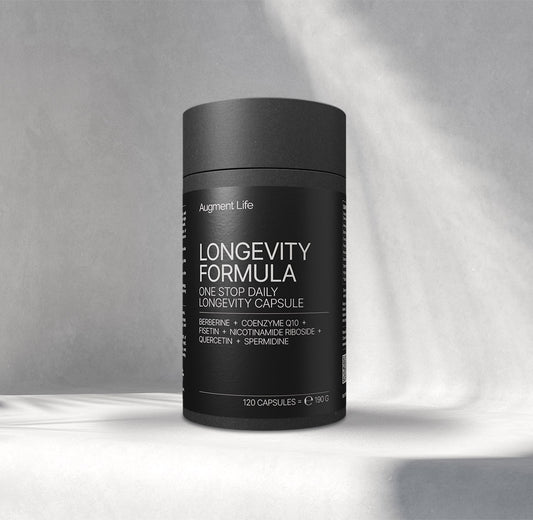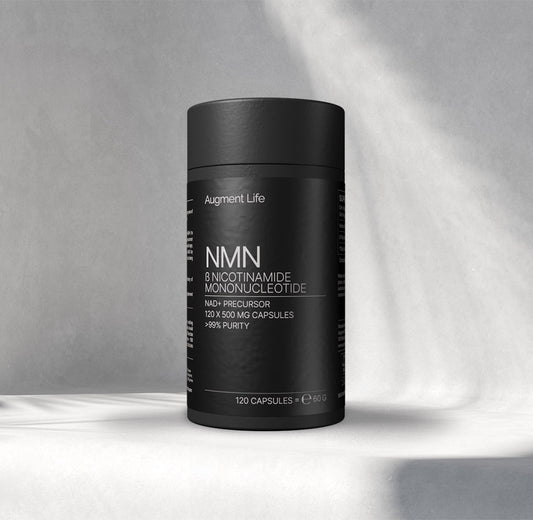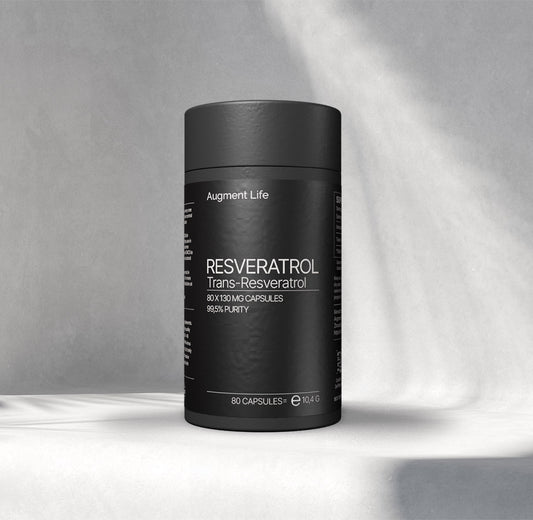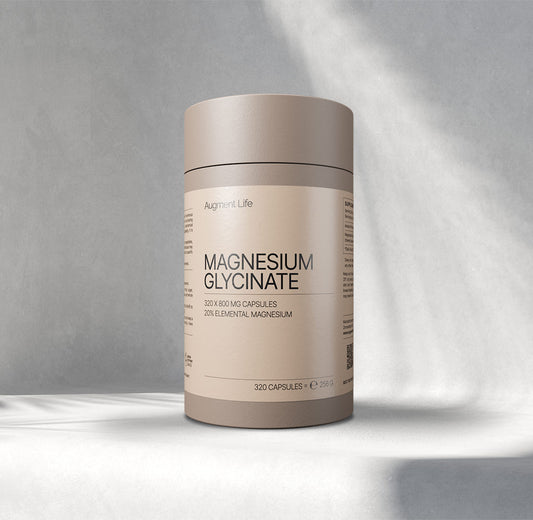NMN or nicotinamide mononucleotide is a molecule that our bodies use as raw material for the synthesis of nicotinamide adenine dinucleotide or NAD+, which is further used in many metabolic processes. Since NAD+ cannot enter the cell membrane itself, NMN was recently formulated as a dietary supplement which easily gets absorbed in the gut.
Read ahead and find how NMN supplementation can benefit you.
NMN Is a Precursor for NAD+ Synthesis
NMN is to NAD+ like eggs are for an omelet, it is an ingredient with a much more important role further down the process. The enzyme called NMN adenylyltransferase catalyzes the synthesis of NAD+ from NMN within our cells. NAD+ is a molecule crucial for energy production in mitochondria, DNA repair in the nucleus, and for proper gene synthesis as well as the cell's response to stress factors.
When there is a lack of NMN as a raw ingredient for NAD+ synthesis, there also won’t be enough NAD+ produced for further metabolic functions. It is a sort of cascade where the concentration of NMN is a limiting first step. Therefore, lower levels of NMN can cause metabolic disbalance and problems, especially with regular cell functioning and DNA repair. That’s why some scientists support the idea that NMN supplementation can prevent DNA damage and prolong cell life through sequential NAD+ production (1).
Since we also naturally produce less NMN as we age, NMN supplementation could potentially be used to prevent cell aging and all related processes. A lot of research on NMN has already been conducted, and many benefits of NMN supplementation were discovered.
NMN Raises NAD+ Levels in Blood
Since NAD+ cannot be directly absorbed by our bodies after oral supplementation, we can supplement with its raw material, NMN. This idea needed to be proven by measuring if NAD+ levels eventually increase in blood after taking a certain dose of NMN.
A study conducted on 10 healthy men showed that single-oral supplementation of either 100, 250 and 500 mg of NMN showed significantly increased levels of NAD+ and NMN intermediates in blood after 5 h (2). Moreover, taking NMN did not result in any negative side effects in any of the men or at any dose administered. These results show NMN is safely metabolized throughout a range of administered doses, and it’s efficiently converted to NAD+.
NMN Works Very Quickly
The question with any dietary supplement is how efficiently and how quickly can it work. So far, mouse trial studies have found that oral NMN supplementation results in conversion to NAD+ pretty fast. More precisely, all of the NMN that was given to mice was absorbed in blood after 15 min.
Also, NMN was also quickly converted to NAD+ and detected in blood, which is the main goal of NMN supplementation.
NMN Increases Muscle Responsiveness and Drowsiness in Older Age
An interesting finding came out of a recent clinical study where NMN supplementation was tested for 12 weeks on 108 participants, aged 65 or older (3). Participants received either 250 mg of NMN or a placebo once a day. The groups receiving NMN were also divided into one getting NMN in the morning and one getting it in the afternoon.
Results showed that the group receiving NMN orally in the afternoon had a significantly higher muscle responsiveness and drowsiness than the groups who received no NMN or received it in the morning. This shows that NMN can significantly improve physical ability and could potentially be used to reverse aging effects in older people.
NMN Increases Aerobic Capacity During Training
Since NAD+ is highly involved in the energy production process in mitochondria, NMN supplementation should theoretically end up in a higher NAD+ concentration and more energy produced.
This was tested in a clinical study performed on amateur runners, where 48 recreational runners received either placebo or 300, 600 or 1200 mg of NMN daily, for 6 weeks (4). Participants trained 5 or 6 times per week and their performance was measured each time. Results showed that groups receiving NMN exhibited higher aerobic capacity during training, and the effect was stronger the more NMN they took. Overall, all applied doses were metabolized safely, with no side effects in all participants, male or female. This study shows NMN most likely increases athletic performance through enhanced utilization of oxygen in skeletal muscle, via NAD+.
Literature:
1. Shade C. The Science Behind NMN-A Stable, Reliable NAD+Activator and Anti-Aging Molecule. Integr Med (Encinitas). 2020 Feb;19(1):12-14. PMID: 32549859; PMCID: PMC7238909.
2. Irie J, Inagaki E, Fujita M, Nakaya H, Mitsuishi M, Yamaguchi S, Yamashita K, Shigaki S, Ono T, Yukioka H, Okano H, Nabeshima YI, Imai SI, Yasui M, Tsubota K, Itoh H. Effect of oral administration of nicotinamide mononucleotide on clinical parameters and nicotinamide metabolite levels in healthy Japanese men. Endocr J. 2020 Feb 28;67(2):153-160. doi: 10.1507/endocrj.EJ19-0313. Epub 2019 Nov 2. PMID: 31685720.
3. Kim M, Seol J, Sato T, Fukamizu Y, Sakurai T, Okura T. Effect of 12-Week Intake of Nicotinamide Mononucleotide on Sleep Quality, Fatigue, and Physical Performance in Older Japanese Adults: A Randomized, Double-Blind Placebo-Controlled Study. Nutrients. 2022 Feb 11;14(4):755. doi: 10.3390/nu14040755. PMID: 35215405; PMCID: PMC8877443.
4. Liao B, Zhao Y, Wang D, Zhang X, Hao X, Hu M. Nicotinamide mononucleotide supplementation enhances aerobic capacity in amateur runners: a randomized, double-blind study. J Int Soc Sports Nutr. 2021 Jul 8;18(1):54. doi: 10.1186/s12970-021-00442-4. PMID: 34238308; PMCID: PMC8265078.












2 comments
Je suis très satisfaite de ma première cure de NMN, j ai pris en meme temps du resvératrol et coenzyme Q10.
Je ressens moins de fatigue, mon sommeil est grandement amélioré et je trouve ma peau plus ferme et plus belle.
Je vais refaire une cure en septembre prochain.
Merci augment life. C est ma première commande mais tout c est bien passé. Service client au top !
Empezaré con el suplemento y les contaré los resultados